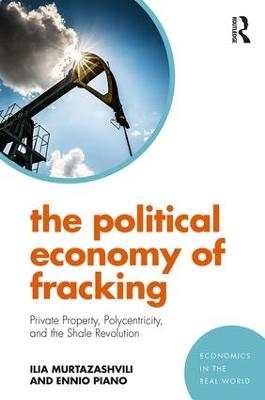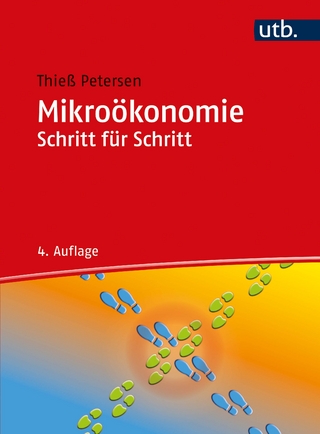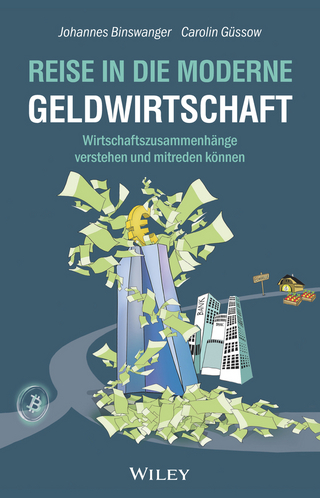
The Political Economy of Fracking
Private Property, Polycentricity, and the Shale Revolution
Seiten
2018
Routledge (Verlag)
978-1-138-31476-4 (ISBN)
Routledge (Verlag)
978-1-138-31476-4 (ISBN)
This book uses insights from different strands of political economy to analyze fracking and questions around why the boom occurred when it did, the divergence in political responses to fracking, and the effectiveness of the regulatory response.
Over the past two decades, "fracking" has led to a revolution in shale gas production. For some, shale gas promised economic opportunities, cheaper energy bills, and an alternative to coal. For others, shale gas was fool’s gold. Critics contend that the shale boom has occurred in a regulatory Wild West, that the response has been fractured and ineffective, or that the harmful environmental and health consequences exceed the benefits from shale gas production.
The Political Economy of Fracking argues that the criticism of the shale revolution has been misplaced. The authors use insights from a diversity of perspectives in political economy to understand why the shale boom occurred, who won in the race for shale, and who was left behind. The book explains how private property rights and entrepreneurs led to the shale boom. It contends that polycentric governance, which encourages a diversity of regulatory responses, is a virtue because it generates knowledge about the most appropriate ways to regulate shale development. Private property rights and political institutions that provide for local self-governance also helped to ensure that the benefits of shale gas production exceeded its costs.
The authors make the case for fracking shale gas using evidence from shale-producing countries from around the world, comparing them to those that have fallen behind in the shale race. They show that private property rights and markets have been a source of innovation and dynamism and that a diversity of regulatory responses is appropriate to govern shale gas development. This book is insightful reading for academics and professionals interested in the shale boom, the fracking industry in general, and regulatory policy.
Over the past two decades, "fracking" has led to a revolution in shale gas production. For some, shale gas promised economic opportunities, cheaper energy bills, and an alternative to coal. For others, shale gas was fool’s gold. Critics contend that the shale boom has occurred in a regulatory Wild West, that the response has been fractured and ineffective, or that the harmful environmental and health consequences exceed the benefits from shale gas production.
The Political Economy of Fracking argues that the criticism of the shale revolution has been misplaced. The authors use insights from a diversity of perspectives in political economy to understand why the shale boom occurred, who won in the race for shale, and who was left behind. The book explains how private property rights and entrepreneurs led to the shale boom. It contends that polycentric governance, which encourages a diversity of regulatory responses, is a virtue because it generates knowledge about the most appropriate ways to regulate shale development. Private property rights and political institutions that provide for local self-governance also helped to ensure that the benefits of shale gas production exceeded its costs.
The authors make the case for fracking shale gas using evidence from shale-producing countries from around the world, comparing them to those that have fallen behind in the shale race. They show that private property rights and markets have been a source of innovation and dynamism and that a diversity of regulatory responses is appropriate to govern shale gas development. This book is insightful reading for academics and professionals interested in the shale boom, the fracking industry in general, and regulatory policy.
Ilia Murtazashvili is Associate Professor of Public Policy at the Graduate School of Public and International Affairs at the University of Pittsburgh, Pennsylvania. Ennio Piano is Ph.D. Candidate in Economics and a Graduate Fellow of the Mercatus Center and F.A. Hayek Program for Advanced Study in Politics, Philosophy, and Economics at George Mason University, Virginia.
1. Introduction 2. Private property rights, entrepreneurs, and the shale revolution 3. The regulatory response 4.Why regulatory diversity makes sense 5.The consequences of the shale boom 6.Why some states were left behind in the shale boom 7.Why some nations were left behind in the shale boom 8.Conclusion
| Erscheinungsdatum | 13.12.2018 |
|---|---|
| Reihe/Serie | Economics in the Real World |
| Zusatzinfo | 3 Tables, black and white; 8 Line drawings, black and white; 8 Illustrations, black and white |
| Verlagsort | London |
| Sprache | englisch |
| Maße | 156 x 234 mm |
| Gewicht | 292 g |
| Themenwelt | Technik ► Elektrotechnik / Energietechnik |
| Wirtschaft ► Volkswirtschaftslehre ► Mikroökonomie | |
| Wirtschaft ► Volkswirtschaftslehre ► Wirtschaftspolitik | |
| ISBN-10 | 1-138-31476-5 / 1138314765 |
| ISBN-13 | 978-1-138-31476-4 / 9781138314764 |
| Zustand | Neuware |
| Haben Sie eine Frage zum Produkt? |
Mehr entdecken
aus dem Bereich
aus dem Bereich
Wirtschaftszusammenhänge verstehen und mitreden können
Buch | Softcover (2023)
Wiley-VCH (Verlag)
19,99 €
die psychologischen Determinanten menschlicher Entscheidungen
Buch | Softcover (2024)
Kohlhammer (Verlag)
39,00 €


